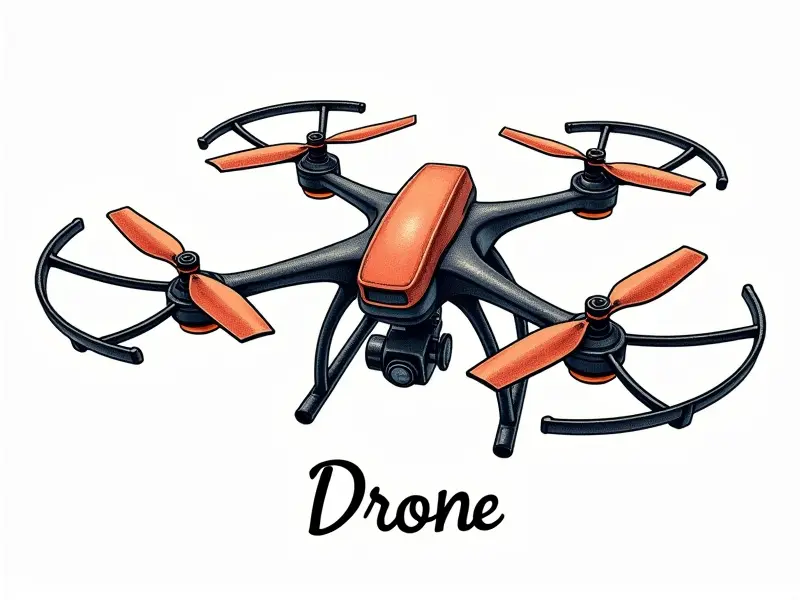Does cold affect battery life?

Does Temperature Affect Drone Flight Time?
The relationship between temperature and drone flight time is a critical consideration for any RC enthusiast. As the mercury drops, so does your battery's performance. This article delves into how cold weather impacts drone batteries, offering insights on maintaining optimal flight duration in chilly conditions.
How Cold Weather Impacts Drone Battery Life
Cold temperatures can significantly reduce a drone’s battery life. Lithium-ion (LiPo) and lithium-polymer (Li-Po) batteries, commonly used in drones, are sensitive to temperature changes. When the ambient temperature drops below freezing, these batteries lose their ability to deliver full power efficiently.
Winter Woes: Cold's Effect on RC Batteries
In winter, drone pilots face unique challenges as cold weather can drastically shorten flight times. The cold causes a reduction in battery capacity and voltage output, leading to shorter flights and less efficient performance. It’s essential for enthusiasts to understand these limitations and take necessary precautions.
Battling the Chill: Cold Weather & Drones
To combat the effects of cold weather on drone batteries, pilots can employ several strategies:
- Pre-Warm Batteries: Before flying, keep your batteries in a warm environment to ensure they start at an optimal temperature.
- Use Battery Heaters: Consider using battery heaters or insulating wraps to maintain a consistent temperature during flights.
- Monitor Temperature Closely: Keep track of the ambient temperature and adjust your flight plans accordingly. Avoid flying in extremely cold conditions if possible.
Freeze Frame: Cold Weather & FPV Racing Batteries
FPV racing drones are particularly susceptible to the effects of cold weather due to their high power demands. Pilots must be vigilant about battery performance and take proactive measures to ensure optimal flight duration:
- Select High-Quality Batteries: Use batteries designed for extreme conditions, such as those with higher discharge rates.
- Pre-Flight Checks: Conduct thorough pre-flight checks to verify battery health and temperature.
Is Your Drone Battery Afraid of the Cold?
The cold can be detrimental to drone batteries, but it’s not an insurmountable challenge. By understanding how low temperatures affect your equipment, you can take steps to mitigate these effects:
- Battery Storage: Store batteries in a warm place when not in use.
- Flight Planning: Plan flights during the warmer parts of the day or indoors if necessary.
Extreme Cold and Drone Battery Duration
In extremely cold conditions, battery performance can be severely compromised. This section explores how to manage your drone’s energy consumption effectively in frigid environments:
- Battery Management Systems (BMS): Utilize BMS that monitor and regulate temperature to extend battery life.
- Flight Profiles: Adjust flight profiles to reduce power demands, thereby extending flight time.
Cold Climate Challenges for RC Battery Use
The cold climate presents unique challenges for RC batteries. Understanding these challenges is crucial for maintaining optimal performance:
- Battery Capacity Reduction: Cold temperatures reduce the overall capacity of LiPo and Li-Po batteries.
- Voltage Drop: As temperature decreases, so does battery voltage, leading to reduced power output.
The Impact of Low Temperatures on Batteries
Low temperatures have a profound impact on the chemical processes within batteries. This section examines how these changes affect performance and longevity:
- Electrolyte Viscosity: Cold weather increases electrolyte viscosity, reducing conductivity.
- Cathode Performance: The cold can impair the cathode’s ability to release lithium ions efficiently.
How Temperature Influences RC Battery Life
The influence of temperature on battery life is multifaceted. This section provides a comprehensive overview of how various factors contribute to performance degradation in cold weather:
- Chemical Reactions: Cold temperatures slow down chemical reactions within the battery, reducing efficiency.
- Electrical Resistance: Increased resistance due to low temperature can lead to higher internal heating and reduced capacity.
Battling the Elements: Cold's Effect on Drones
To battle the elements effectively, it’s crucial to understand how cold weather affects drones beyond just battery performance. This section covers additional considerations:
- Propeller Efficiency: Cold air is denser, which can affect propeller efficiency and overall flight dynamics.
- Electronic Components: Ensure that all electronic components are protected from the cold to prevent malfunction or damage.
Conclusion
Cold weather poses significant challenges for drone pilots, particularly when it comes to battery performance. By understanding how temperature affects your equipment and taking proactive measures, you can extend flight times and ensure optimal performance in chilly conditions. Whether you’re an FPV racer or a casual hobbyist, staying informed about the impact of cold temperatures on batteries is crucial for enjoying seamless flights.

